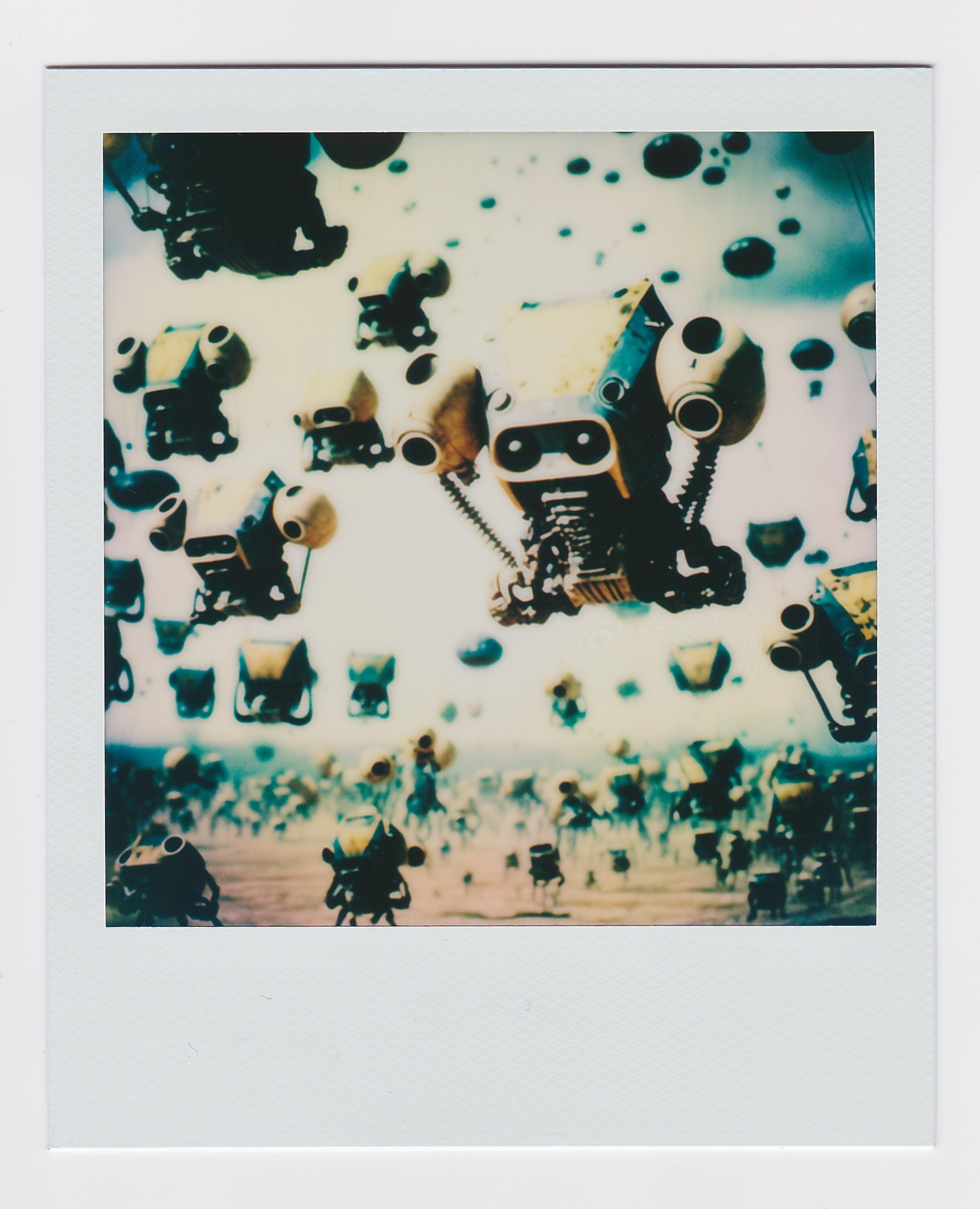AI Am I? ARTificial Intelligence as Generated by Alexander Reben

The Crocker Art Museum is pleased to announce AI Am I? ARTificial Intelligence as Generated by Alexander Reben, on view from October 22, 2023 through April 28, 2024. This exhibition asks audiences to consider the role of artificial intelligence (AI) in the future of art and daily life. By presenting a range of works Alexander Reben created before and after the advent of current-generation large AI models, it also doubles as a brief history of this emergent field.
In 2022, generative AI, a broad category of technologies capable of producing content including text, imagery, video, and audio, became the subject of intense public discourse. Some worried that these tools would invalidate the role of the human in creative production, while others regarded it as a great unlock for human creativity. Some have taken their pessimism further, seeing doomsday in the outputs. If machines are already this powerful, how long will it be before the robot takeover so often depicted in dystopian science fiction?
These developments were many years in the making. A handful of artists, particularly a small group in the 2010s, identified the incredible potential of AI—both as a threat and opportunity— and developed fluency creating with it. In the process, artists became critical translators for otherwise inscrutable technologies, embodying Marshall McLuhan’s claim that art operates as a “Distant Early Warning system that can always be relied on to tell the old culture what is beginning to happen to it."¹
Across his work with robots, software, and algorithms, Reben has established himself as a leading translator, developing a practice based on investigations in what he calls “human-machine symbiosis” since 2012. The term isn’t simply a semantic flourish. It reflects the artist’s sense of our emerging and evolving relationships with machines. The stretched canvas, paint pigments, and the chisel were all new technologies at one point, and humanity has confronted the effects of new forms of automation many times before. Yet artificial intelligence provokes a novel question: how should humans relate to tools that can learn and improve themselves? Through a body of work exploring human-machine symbiosis, Reben takes this question a step further by asking: are machines entities with whom we should cooperate? And if so, to what degree? This line of research is evident in the title of Reben’s solo exhibition at the Crocker, AI Am I? (which was generated with the aid of AI), and further in the artworks that comprise the show.
In the series from which the exhibition draws its name, AI Am I?, Reben inverts the expected roles of humans and machines. As he puts it, “the AI prompts the human instead of the human prompting AI.” In sculptures like A Short History of Plungers and Other Things That Go Plunge in the Night, Reben makes (or commissions) works based on concepts generated by AI. Reben augments this approach in his series of oil paintings, including Dreams of the Cheese-Faced Gentleman, wherein he prompts a language model to describe a painting composition. He then plugs the resulting description into an image generator to arrive at the visual output, which he sends to a painting workshop to paint on canvas. In the exhibition, he presents the artworks and their AI generated texts as diptychs.
In a series of new interactive pieces, Reben invites the public to co-create artworks with AI. In Speak Art Into Life, a community-based artwork generated with AI, the public is invited to contribute by verbally prompting the AI to describe a composition. They can then select an image based on the visual description. The image they co-create with AI becomes part of a continuous artwork that is an amalgamation of everyone’s input. The exhibition will also feature a new robot that draws AI-generated sketches using pens and paper. Each day’s drawing is inspired by the previous day’s output, creating hundreds of unique physical artworks throughout the exhibition. Throughout, he grounds his work in an ethos of play, prizing questions over answers, and engaging machine intelligence in unexpected and humorous ways.
Arguably the most prominent question to arise with the prevalence of large models involves labor. Are jobs like artist, designer, photographer, director, and musician becoming the domain of machines? It’s too soon to understand the full impacts of these technologies, but in observing the camera’s impact on painting and the synthesizer’s effect on music (to reference just two such examples), it seems fair to assume these fields will undergo seismic shifts in the years to come—and by proxy, the nature of jobs and labor in these fields.
Reben’s practice offers glimpses for a possible first principle of human creative labor in the future: by centering curiosity. With machines ever better at producing outputs (answers), the role of the human is to generate better questions. Reben sidesteps the extremes that dominate conversations about AI, instead imagining futures in which symbiosis between humans and machines prompts novel forms of creativity in both.
In addition to the exhibition at the Crocker, Reben’s work is on display at bitforms gallery in New York City in the solo show Delusions of a Time-Traveling Cactus Alexander Reben, on view September 6 – October 28, 2023. The work included similarly investigates human connections with algorithms and automation and presents Reben’s role as translator of the feedback loop—a circuit he probes through art making. Previous gallery shows include the AI-Mazing and I’m Not A Painter, both at Gazelli Art House in London.
¹ Marshall McLuhan, Understanding Media: The Extensions of Man (New York: McGraw-Hill, 1964).